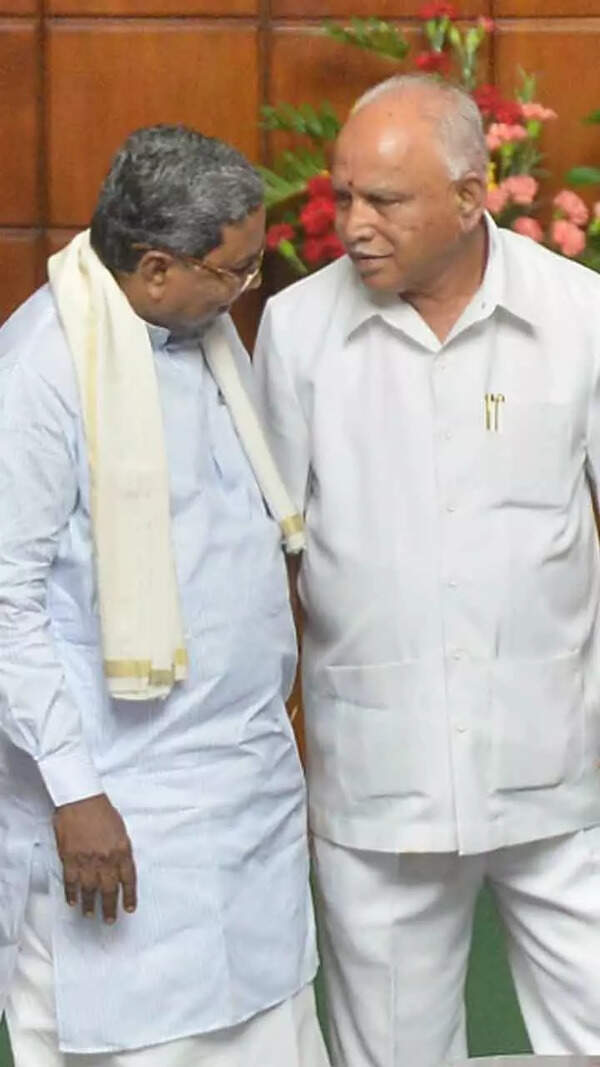- News
- City News
- chennai News
- If a bill is withheld, it means it is dead: Tamil Nadu governor R N Ravi
Trending Topics
If a bill is withheld, it means it is dead: Tamil Nadu governor R N Ravi

Tamil Nadu governor R N Ravi
CHENNAI: Tamil Nadu governor R N Ravi set off yet another political storm in the state by saying that if a governor withholds a bill adopted by the state assembly, it means the legislation is dead. "It ('withhold') is a decent language used, instead of the word 'reject'. When you say 'withhold', the bill is dead," Ravi said, addressing civil services-aspirants as part of the 'Think to dare' programme at Raj Bhavan on Thursday.
Explaining how a governor has three options under Article 200 of the Constitution - to give assent to a Bill, to withhold it or to reserve it to the President of India - Ravi said: "Withholding does not mean that I am holding it. Withholding has been defined by the Supreme Court as the bill falls through, the bill is dead."
He, however, said if a returned bill is reiterated by the assembly and resent to the governor, he has no option but to give assent. If a bill is not within the competence of the legislature, and if the governor realises it, he returns it, along with reasons, to the Speaker for reconsideration of the House, he said. "And, after reconsideration, if the assembly again passes the bill and sends to the governor, then the governor has no option but to accord assent. That is the constitutional position," Ravi said.
Noting that the Constitution is a 'sacred document,' Ravi said a governor's first and foremost responsibility is to protect the Constitution.
Sometimes, governors pass a bill thinking I don’t like to be a bad boy, but that is not the right thing. A governor is not there to take pleasant decisions. You have to take hard decisions also.
“If a particular bill is not consistent and if it is not in the Concurrent List, then the governor has to take a call.”
In the legislature, a political party has majority and hence they can pass any bill. If it transgresses the constitutional limit, the bill passed by the legislature/assembly does not become a law until the governor assents the bill, Ravi said, adding: “This ‘assenting to’ is a constitutional responsibility.
“The governor has to see whether the bill is exceeding the limit, whether the state is exceeding its competence. If it exceeds its competence, then it is the responsibility of the governor to ‘not to assent’ the bill.”
The governor cited the Constitution to say the legislature of a state comprises a governor and ‘number two’ is the legislative assembly.
Explaining how a governor has three options under Article 200 of the Constitution - to give assent to a Bill, to withhold it or to reserve it to the President of India - Ravi said: "Withholding does not mean that I am holding it. Withholding has been defined by the Supreme Court as the bill falls through, the bill is dead."
He, however, said if a returned bill is reiterated by the assembly and resent to the governor, he has no option but to give assent. If a bill is not within the competence of the legislature, and if the governor realises it, he returns it, along with reasons, to the Speaker for reconsideration of the House, he said. "And, after reconsideration, if the assembly again passes the bill and sends to the governor, then the governor has no option but to accord assent. That is the constitutional position," Ravi said.
Noting that the Constitution is a 'sacred document,' Ravi said a governor's first and foremost responsibility is to protect the Constitution.
Sometimes, governors pass a bill thinking I don’t like to be a bad boy, but that is not the right thing. A governor is not there to take pleasant decisions. You have to take hard decisions also.
“If a particular bill is not consistent and if it is not in the Concurrent List, then the governor has to take a call.”
In the legislature, a political party has majority and hence they can pass any bill. If it transgresses the constitutional limit, the bill passed by the legislature/assembly does not become a law until the governor assents the bill, Ravi said, adding: “This ‘assenting to’ is a constitutional responsibility.
“The governor has to see whether the bill is exceeding the limit, whether the state is exceeding its competence. If it exceeds its competence, then it is the responsibility of the governor to ‘not to assent’ the bill.”
The governor cited the Constitution to say the legislature of a state comprises a governor and ‘number two’ is the legislative assembly.
Start a Conversation
FOLLOW US ON SOCIAL MEDIA
FacebookTwitterInstagramKOO APPYOUTUBE










